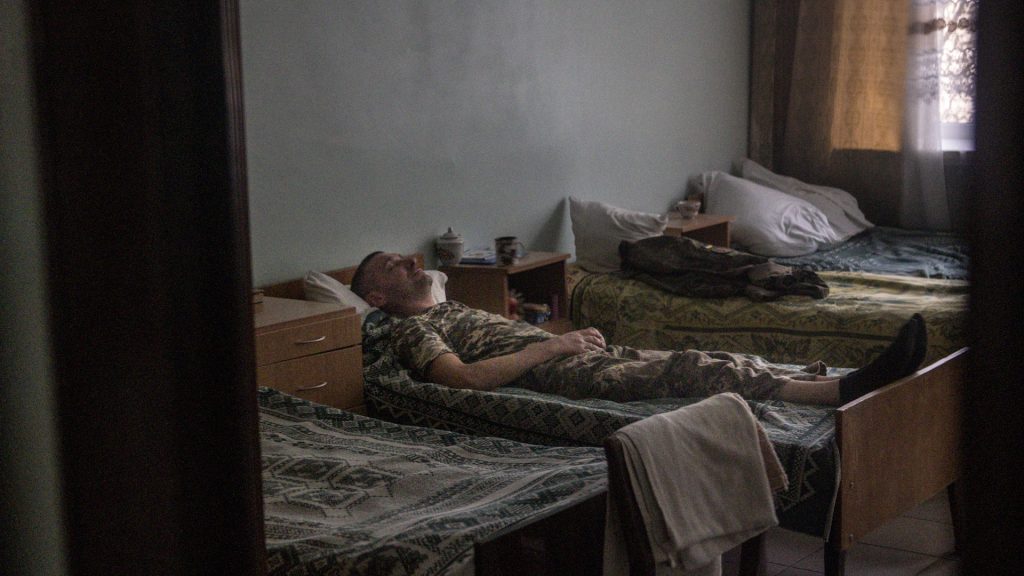Sleepless in Ukraine: Drone strikes and the rise of antidepressant use
Ella Greene April 25, 2025 0
Ukrainians are facing a growing mental health emergency, with near-nightly drone strikes fueling widespread sleep loss and compounding anxiety, depression and other stress-related disorders. The World Health Organization reported in February that nearly half the population is now experiencing mental health concerns.
Residents in cities such as Kyiv and Dnipro say the constant noise of drones, explosions and air raid alarms has become a nightly routine, pushing families into shelters or hallway beds. Many now rely on sedatives, antidepressants or coping rituals — but even those often fall short. In 2024, antidepressant sales in Ukraine rose by 46%, according to Liki24.com, one of the country’s major drug distributors.
What role do air raid alarms and drone attacks play?
Ukrainian officials say Russia has intensified drone use in recent months, particularly since the start of U.S.-mediated peace talks.
Shahed-type drones, deployed in large swarms and often accompanied by decoys, fly low over civilian areas during the night, triggering air raid alerts and keeping residents on edge. Each attack causes prolonged interruptions to sleep and has become a major stressor in daily life.
Even when drones are intercepted by air defenses, alarms and explosions still fragment sleep cycles. Neurologist and sleep consultant Natalia Domres, based in Kyiv, says nighttime attacks destabilize residents’ ability to process stress and maintain physical health.
“It feels like one endless day that never ends,” she said.
How does sleep deprivation affect mental and physical health?
Doctors across Ukraine are reporting a sharp rise in sleep disorders and mental health issues. Psychiatrist Davyd Shcherbyna told the New York Times that half his patients are now dealing with disrupted sleep, often linked to depression.
Domres warns that prolonged sleep loss weakens the immune system and can worsen cardiovascular disease, diabetes and neurological conditions. Mental health professionals also report seeing more children with signs of stress, anxiety and insomnia.
A 2022 article in Revue Neurologique found that chronic sleep disruption in war zones can increase the risk of post-traumatic stress, cognitive decline, seizures and neurodegenerative diseases like multiple sclerosis. Sleep loss also raises inflammation markers and disrupts metabolic processes, posing a long-term burden on Ukraine’s health care system.
How are Ukrainians coping with the psychological toll?
Many Ukrainians have adapted by creating nightly safety routines. Some keep emergency medical kits at their bedside, while others retreat to bathrooms or corridors instead of formal shelters. Weighted blankets, shared beds with children and late-night news scrolling have all become part of coping mechanisms. Domres, who lives in a heavily targeted area of Kyiv, said families often stay in hallways rather than attempt to sleep in beds near windows.
Despite efforts to manage the stress, fatigue is setting in. Kyiv resident Katya Taylor said she now sleeps in the hallway after a drone strike in her neighborhood killed a teenage girl.
“I realized we’ve adapted to a life that’s far from normal,” she said.
What does the future look like for Ukraine’s mental health?
Antidepressant use is rising, but with ongoing drone strikes, doctors warn the toll could deepen. Without rest or treatment, long-term psychiatric and neurological risks may rise, especially for children, veterans and refugees.
While domestic sales of antidepressants increased sharply last year, usage in Ukraine remains lower than in many European countries due to access, stigma and underdiagnosis.
The Business Research Company estimates the global antidepressant market will reach nearly $18 billion in 2025, with growth driven by rising rates of depression and anxiety, especially in countries experiencing crisis or war.
“This is terror aimed at breaking daily life,” Domres said. “But Ukrainians keep adapting. That’s how they keep going.”
Ella Rae Greene, Editor In Chief
Ella Greene
Ella and the staff at Clear Media Project (CMP) curate these articles.
Unless otherwise noted CMP does not write these articles.
The views, thoughts, and opinions expressed in the articles published on this blog belong solely to the original authors and do not necessarily reflect the views of the blog owner. The blog owner does not claim ownership of the content shared by contributors and is not responsible for any inaccuracies, errors, or omissions.
All rights and credits goes to its rightful owners. No Copyright Infringement is intended. If you believe any content infringes on your rights, please contact us for review and potential removal.





